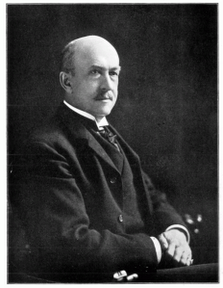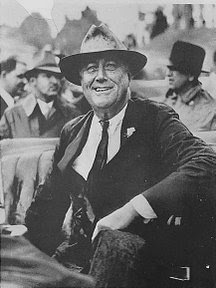William Graham Sumner and Franklin Roosevelt had different definitions of “The Forgotten Man.” Amity Shlaes writes of the two in her book, The Forgotten Man: A New History of the Great Depression. I’ve written of the book, favorably, several times.
Sumner saw the forgotten man as one who was burdened under government; Roosevelt saw him as someone who needed government.
Here’s how Shlaes juxtaposes the two views, with Roosevelt’s redefinition of Sumner’s description —
As soon as A observes something which seems to him to be wrong, from which X is suffering, A talks it over with B, and A and B then propose to get a law passed to remedy the evil and help X. Their law always proposes what C shall do for X, or in the better case what A,B, and C shall do for X….
What I want to do is look up C. I want to show you what manner of man he is. I call him the Forgotten man. Perhaps the appellation is not strictly correct. He is the man who is never thought of…
He works, he votes, generally he prays — but he always pays.
— WILLIAM GRAHAM SUMNER, YALE UNIVERSITY, 1883
These unhappy times call for the building of plans that rest upon the forgotten, the unorganized but indispensable units of economic power, for plans like those of 1917 that build from the bottom up and not from the top down, that pit their faith once more in the forgotten man at the bottom of the economic pyramid.
— GOV. FRANKLIN ROOSEVELT OF NEW YORK, RADIO ADDRESS IN ALBANY, APRIL 7, 1932
I believe Sumner’s view the more astute and uplifting one, as he favored arrangements with the most potential for allowing people to escape misery and dependency. No system brings more people out of poverty than one of free markets in capital and labor.
(Although Sumner’s students admired him, Roosevelt was – as the photographs suggest – more personable. That’s an admirable trait all its own.)
However much these definitions are different, they have one thing in common — both Sumner and Roosevelt were concerned about real people, real conditions. They had an immediate, practical concern.
The difference between either of these views (one libertarian, the other progressive) and the thinking behind something like a multi-million dollar Innovation Center project in Whitewater, Wisconsin is vast. For more on this idea, see Whitewater’s Innovation Center from the Perspective of the New Deal.
From Sumner’s or Roosevelt’s real and practical concern for others, one finds now only an unrealistic and fantastic string of declarations, proclamations, and grand statements.
And yet, not a single declaration, proclamation, or grand statement will make a difference in the lives of Whitewater’s residents if the thousand new jobs promised never appear. Sumner — and Roosevelt’s New Dealers — would have seen this easily.


